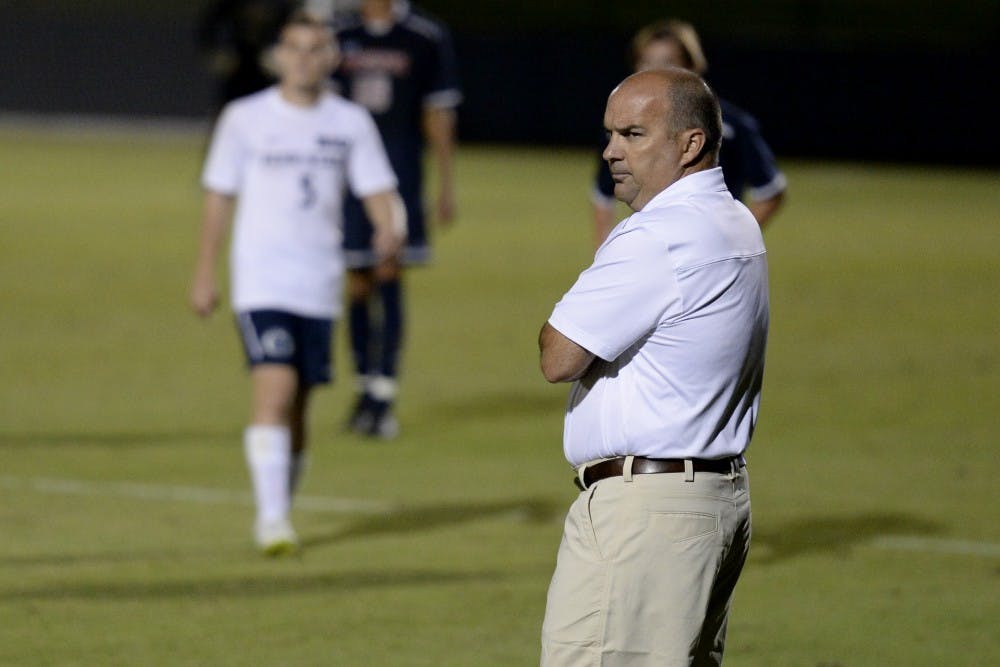
Penn men's soccer coach Rudy Fuller looks to mentor more than players — he also molds coaches.
Credit: Alex Fisher , Alex FisherHead coaching positions in Division I athletics don’t come easily. The road to these roles often involves numerous steps, many of which involve switching schools and moving across the country. Before ever even interviewing for a head coaching job at a school, one may work alongside and under many other coaches.
In these assistant roles, coaches learn a tremendous amount about how to run a program, from in-game tactics to recruiting.
Penn men’s soccer head coach Rudy Fuller has had dozens of assistant coaches during his 19-year tenure at the school. And out of that cast, in a true testament to Fuller’s leadership and coaching prowess, four of them have become head coaches — either at other D-I programs, or professionally.
Rob Irvine (La Salle), Bob Butehorn (Florida Gulf Coast), John Pascal (UC-San Diego) and Rob Vartughian (New York City FC) all were assistant coaches for the Quakers with Fuller at the helm.
The success of these assistants does not surprise Fuller in any way. In fact, he wants his assistants to be ambitious when working with him.
“Any head coach would tell you they want to hire coaches that aspire to coach at the highest level. I’ve been very fortunate to have great people work for me,” Fuller said. “Some were younger and just getting started in their coaching career, and a few, like Bob Butehorn, were very accomplished and successful head coaches in their own right when they joined my staff at Penn, and we were really excited to have someone of that caliber on our team.”
Fuller believes that he has had little to do with the success of his assistants, but instead the experience and responsibilities of coaching in the Ivy League force young coaches to quickly learn on the job.
“Coaching at a school like Penn, you’re given a lot of responsibility. We don’t have a staff of 10 people, so those guys are able to gain a lot of different experiences and it gives them exposure to a really high level.”
It also appears that the experience and knowledge that is passed does not flow from head coach down.
“For the more experienced coaches I have had on staff, guys like Bob Butehorn, I definitely learned more from them than they took from me. It was a very good experience on both sides. It’s always a two-way street, and the different philosophies and views of the game are beneficial. A place like Penn attracts the best candidates, and we’ve been fortunate to have them here.”
While Fuller won’t take much credit for his assistants landing jobs at other programs, those coaches certainly will acknowledge the effect he had on their careers.
“I don’t think there is a better mentor than Rudy when it comes to learning how to handle players and get the most out of them,” Irvine said. “It was such a meaningful eight years at Penn and it really shaped me into the coach I am today.”
No matter who deserves the credit, it is indisputable that at this very moment in D-I college soccer (and Major League Soccer as well), there are a total of four former Penn assistants that worked under the tutelage of Rudy Fuller.
It seems hard to imagine that he had nothing to do with that.
The Daily Pennsylvanian is an independent, student-run newspaper. Please consider making a donation to support the coverage that shapes the University. Your generosity ensures a future of strong journalism at Penn.
DonatePlease note All comments are eligible for publication in The Daily Pennsylvanian.





